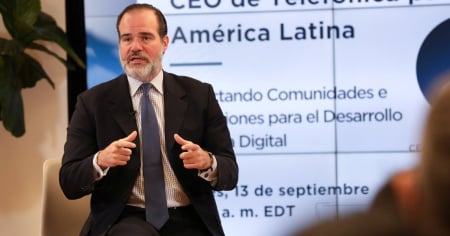The charming and bold song by a Venezuelan immigrant in the United States addressed to Donald Trump, pleading for him not to deport him, has gone viral on social media.
The young man, who identifies himself on TikTok as Maestro de Luxor, composed a track in which he humorously describes his life in the country and explains the reasons why he doesn't deserve to be sent back to Venezuela.
The maestro states that he arrived in the United States after crossing the jungle and several countries, and he insists that he is fully integrated: he works, obeys the laws, and wants to find an American woman to marry.
He also sends a message to his fellow countrymen: make money honestly, stay alert, and avoid committing any crimes.
But the most striking part is definitely his specific request to the elected president: "If you set me up with an American girl, I’ll give you a patacón."
Frequently Asked Questions about Migration and Deportation of Latinos in the U.S.
Why has the Venezuelan song about Trump gone viral?
The song of the Venezuelan migrant has gone viral because it uses humor to ask Donald Trump not to deport him, highlighting his integration in the U.S. and his desire to stay. This original form of expression has garnered attention on social media due to its playful and bold tone.
How does Trump's deportation policy affect Latin American immigrants?
Donald Trump's deportation policy creates uncertainty and concern among Latino immigrants, who fear being deported and face challenges in regularizing their immigration status. Potential mass deportations could have a significant social and political impact in their countries of origin, such as Cuba, where the government might struggle to reintegrate them.
What is humanitarian parole and why is it important for Cubans in the U.S.?
Humanitarian parole is a program that allows Cubans to enter the United States under specific circumstances, facilitating family reunification and providing better life opportunities. It is a highly valued measure among Cubans seeking stability and opportunities abroad, but recent changes in immigration policies have created uncertainty about its future.
How does the perception of emigrants as "millionaires" affect them when they return to their countries?
The perception of emigrants as "millionaires" upon their return to their home countries creates unrealistic expectations and social pressure on them, as their family members often believe they have a high purchasing power. This misconception arises from a lack of understanding about the economic and labor difficulties they face abroad, and it is exacerbated by social media, which only showcases the positive aspects of life in the U.S.
Filed under:
